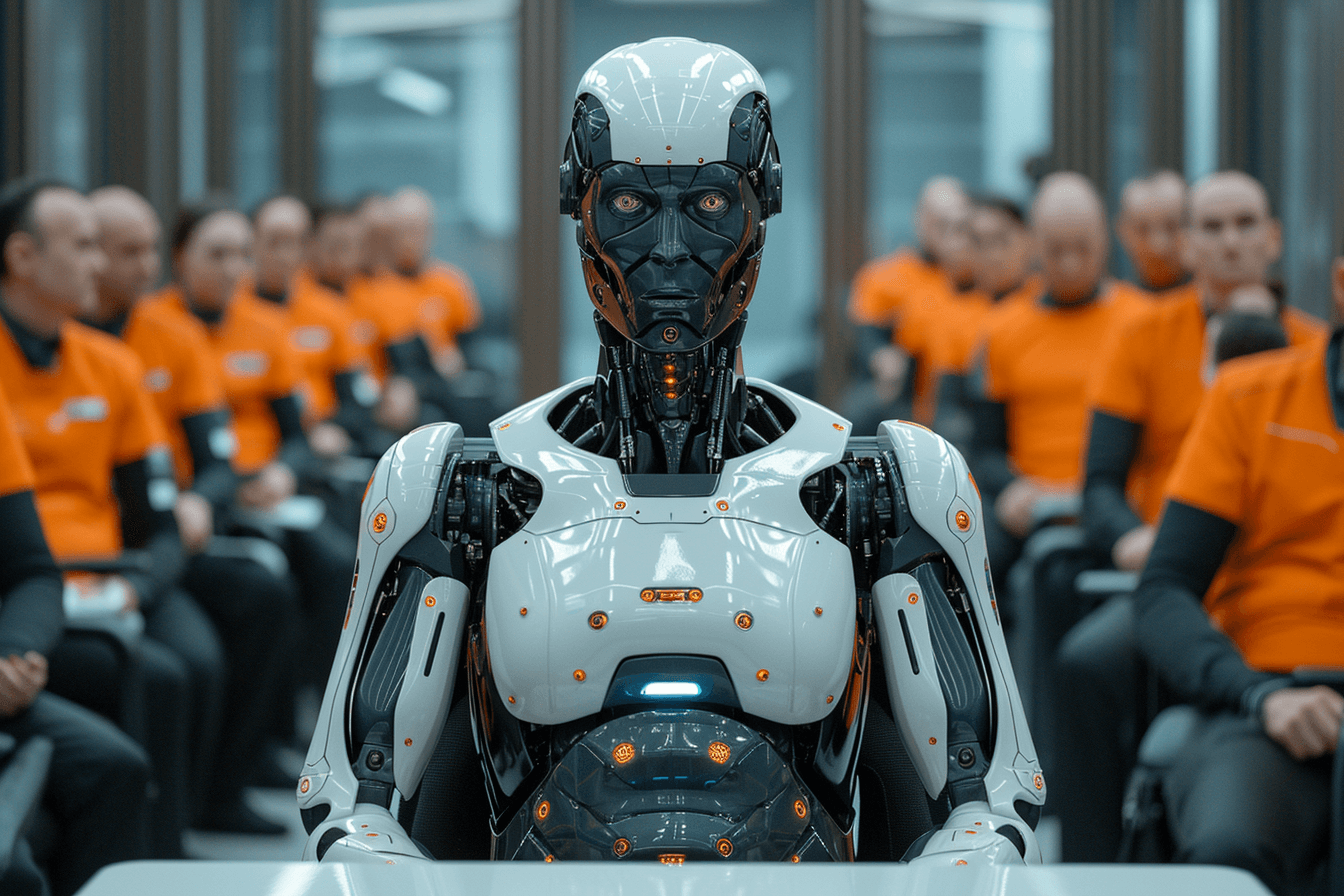The International Monetary Fund warns against artificial intelligence. A few days ago, an IMF report appeared warning about changes in the labor market that will occur as a result of the integration of artificial intelligence on an increasingly wider scale. According to the IMF, AI will impact up to 40% of jobs around the world in the next few years. Are we really facing a revolution on the labor market?
The IMF report points to a problem that some people are already recognizing
There is no denying that 2023 will be a year marked by artificial intelligence. AI was changed in every case last year, and the capabilities of tools such as the ChatGPT content generator or Midjourney graphic designer were impressive. The labor market quickly noticed the potential of new solutions, and specialists who could effectively use modern AI tools began to be sought after on the labor market.
The changes were already visible in 2023, so the next 12 months may make this trend even more visible. This conclusion was reached not only by experts tracking the development of technology and its impact on the labor market, but also by the International Monetary Fund. The IMF report warns that artificial intelligence technology will impact up to 40% of global jobs in the coming years.
The impact of artificial intelligence on the labor market
The Managing Director of the International Monetary Fund, Kristalina Georgieva, published an IMF report on the impact of artificial intelligence on the labor market. This 41-page long document details the possible impact of artificial intelligence on the global economy and jobs. According to this report, artificial intelligence will have a huge impact on virtually every sector in the coming months.
According to the report, in the United States alone, artificial intelligence may be responsible for the disappearance of up to 60% of jobs in the next few years. Kristalina Georgieva points out that the changes caused by the impact of AI on the labor market will be particularly visible in highly developed countries.
Artificial intelligence is expected to deepen wage inequality and contribute to a very drastic increase in social unrest. The IMF report suggests that individual countries should now prepare for the interference of artificial intelligence in local labor markets. Georgieva suggests that countries should now create “comprehensive social safety nets” and programs offering training that will retrain workers in sectors most at risk of layoffs.
Is the future of the labor market as bleak as the IMF report presents?
It all depends on how far companies decide to get into generative artificial intelligence. Looking at the general interest in this topic, it is safe to say that AI will significantly change the labor market. Artificial intelligence is not only about creating funny pictures – it is primarily tools that make everyday work easier and perform many tasks much faster than humans.
Nevertheless, the most effective solution is a combination of human and artificial intelligence – I don't mean an android (at least not yet), but a person who is able to effectively use AI tools in his daily work. ChatGPT or Midjourney are already changing the face of marketing, so the use of AI in other sectors is only a matter of time and appropriate adaptation of tools based on generative artificial intelligence.
Taking this into account, it can be safely said that the labor market will change dramatically in the coming years. Artificial intelligence may indeed eliminate a large number of jobs, but it will also create a demand for new professions. It is for this reason that the IMF report mentions the need to create training centers that will allow people to learn AI tools and increase their competences and attractiveness on the labor market.
Why is it so important to acquire competences in the field of artificial intelligence?
In the coming quarters, Copilot and DuetAI, i.e. AI tools for Google Workspace and MS Office, are expected to appear for good. People who will be able to work effectively with Copilot and DuetAI will increase their productivity several times. This, in turn, will reduce the number of workers needed.
Therefore, it is natural to conclude that acquiring competences in the field of AI tools is a necessity today. The changes mentioned in the IMF report will change the labor market in the next few months. It is therefore worth preparing for this, even if the worst-case scenarios of replacing 40% of jobs in the world will only partially come true.

